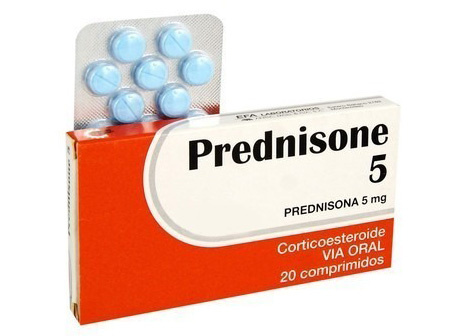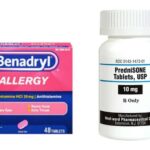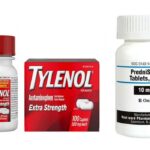What Are the Short-Term Side Effects of Prednisone?

A short-term side effect refers to an adverse event or problem that is caused by a treatment but which usually goes away after treatment ends. Prednisone is in a class of medications called corticosteroids. It works to treat patients with low levels of corticosteroids by replacing steroids that are normally produced naturally by the body. It works to treat other conditions by reducing swelling and redness and by changing the way the immune system works. Prednisone is not a common drug of abuse. Although obtaining it does require a prescription, it is not listed as a controlled substance by the United States Drug Enforcement Administration (DEA).
Prednisone is used alone or with other medications to treat the symptoms of low corticosteroid levels (lack of certain substances that are usually produced by the body and are needed for normal body functioning). Prednisone is also used to treat other conditions in patients with normal corticosteroid levels.
Although steroids are known to have serious side effects when used for an extended period, limited attention has been paid to the risks of using these medications for only a few days or weeks.
Now a new study, published in the journal Annals of Internal Medicine, suggests that even short-term steroid use might be risky. To conduct the study, Taiwanese researchers examined a health insurance database that contained information on nearly 16 million medical claims. They determined that people who were prescribed oral corticosteroids were significantly more likely to experience GI bleeding, sepsis, and heart failure within a month of getting the prescription.
What is considered short-term use of prednisone?
Short-term treatment (7–14 days) with oral prednisone is used for many acute inflammatory and allergic conditions.
What Are the Short-Term Side Effects of Prednisone?
The short-term side effects of Prednisone tend to be milder, especially with lower doses and short-term use. They may last a few days to a few weeks. This isn’t a complete list of side effects. If side effects last for a long time or get worse, patients should talk to their pharmacist or medical provider.
People with acute conditions such as asthma flare ups, allergic reactions or a flare up of chronic obstructive pulmonary disease (COPD) may take prednisone short-term.
Common prednisone side effects include:
- Acne
- Blurred vision
- Changes in behavior or mood
- Elevated blood pressure levels
- Elevated blood sugar levels
- Fluid retention
- Headache
- Nausea
- Restlessness and inability to stay still (akathisia)
- Sleep problems
- Thinning skin
- Vomiting
- Weight gain
What are the long-term effects of prednisone?
Like other corticosteroids, prednisone have many uses, they also come with several long-term side effects. Prednisone to lead to problems like;
- Osteoporosis (thin bones)
- A weakened immune system
- Cataracts
- Thin skin with topical products
- Fungal infections of the mouth or throat with inhalers.
- Weight gain
- Insomnia
- High blood pressure
Do the benefits of prednisone outweigh the negative side effects?
The answer to this question will be different for everyone. Certain medical conditions, other medications you take, and how long you’ll be using prednisone are just some things your provider will take into account when deciding if they are the best option for you.
Oral corticosteroids like prednisone have the largest risk of negative side effects because they affect all areas of your body. For most people, they’re only given for a very short period of time without refills to try to limit serious side effects. People who do take long-term oral corticosteroids typically have severe conditions that cannot be treated well with other medications. So for them, the benefits usually outweigh the risks.





